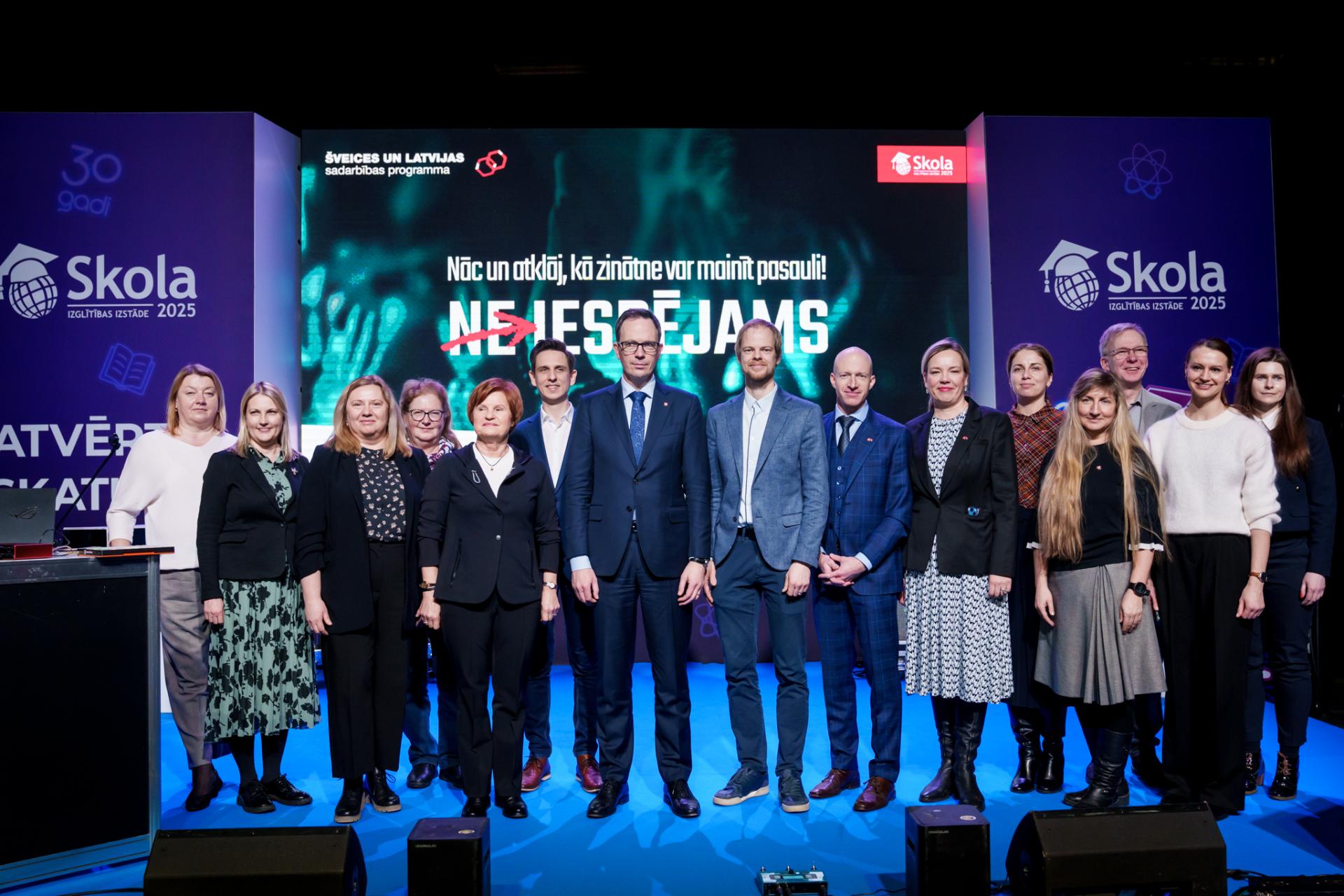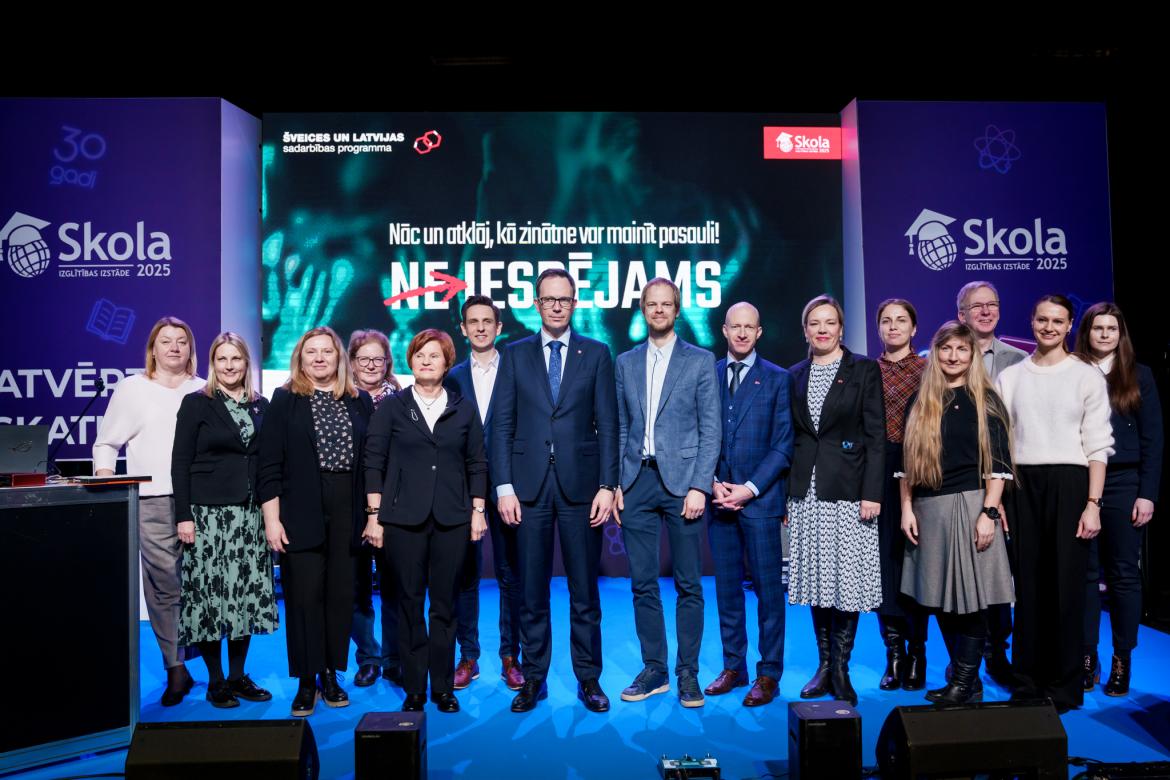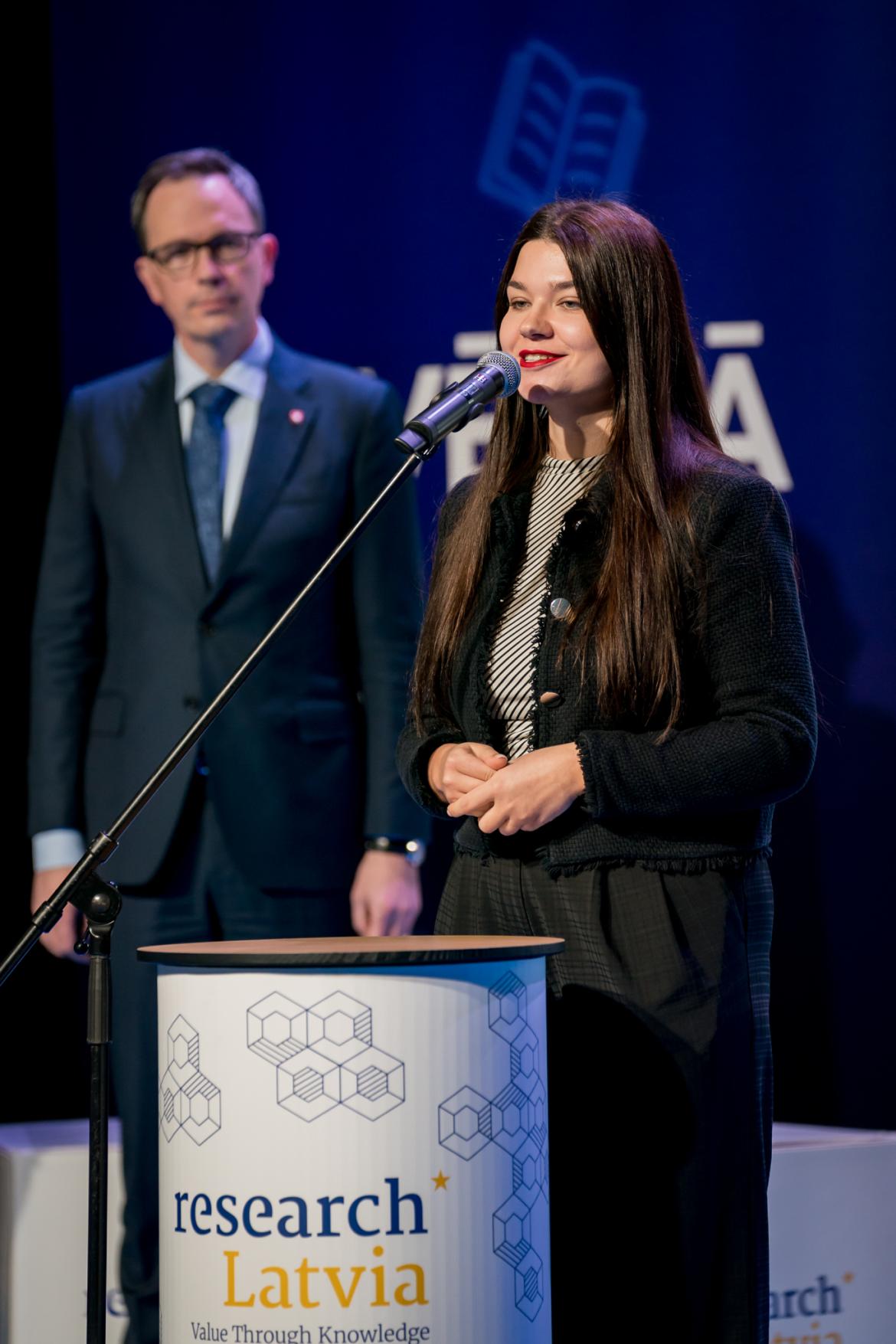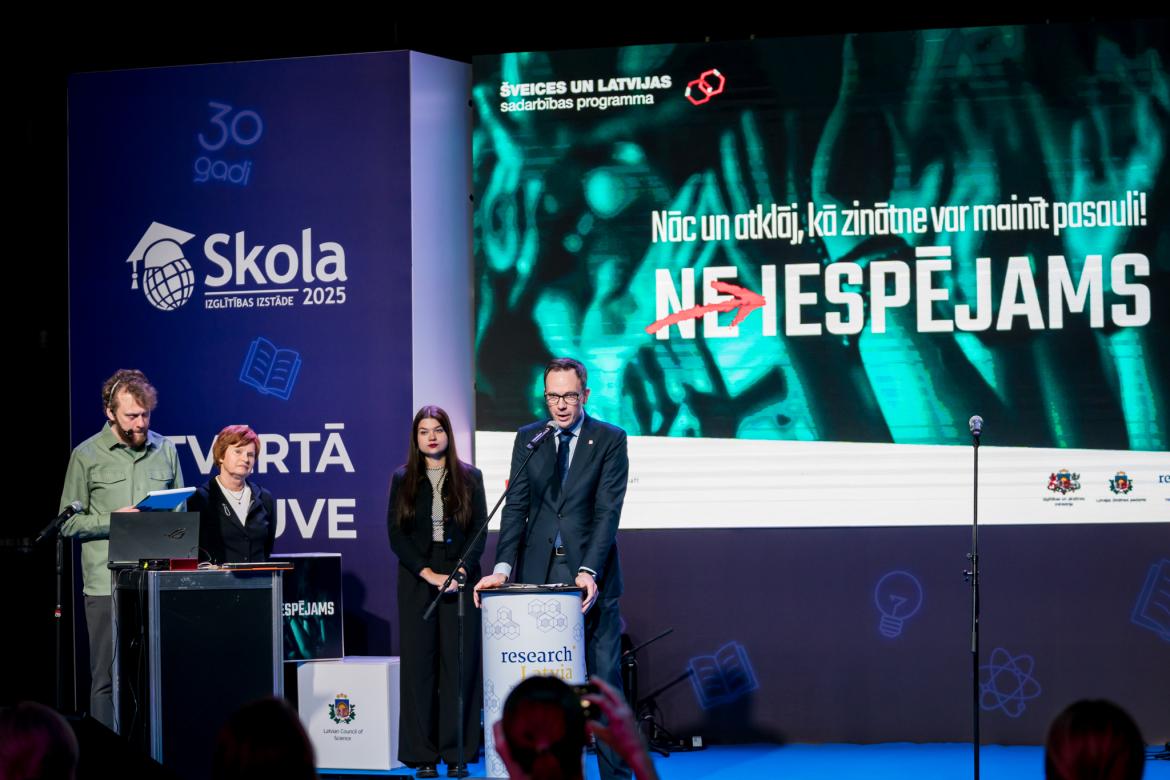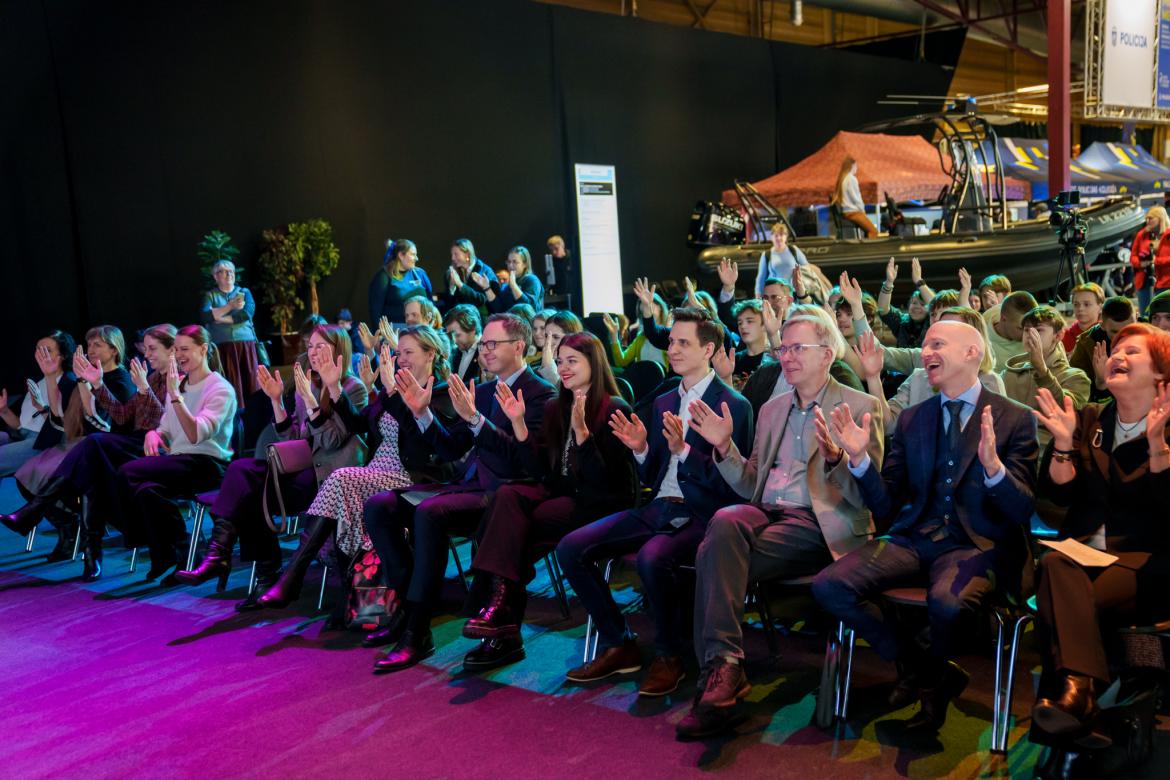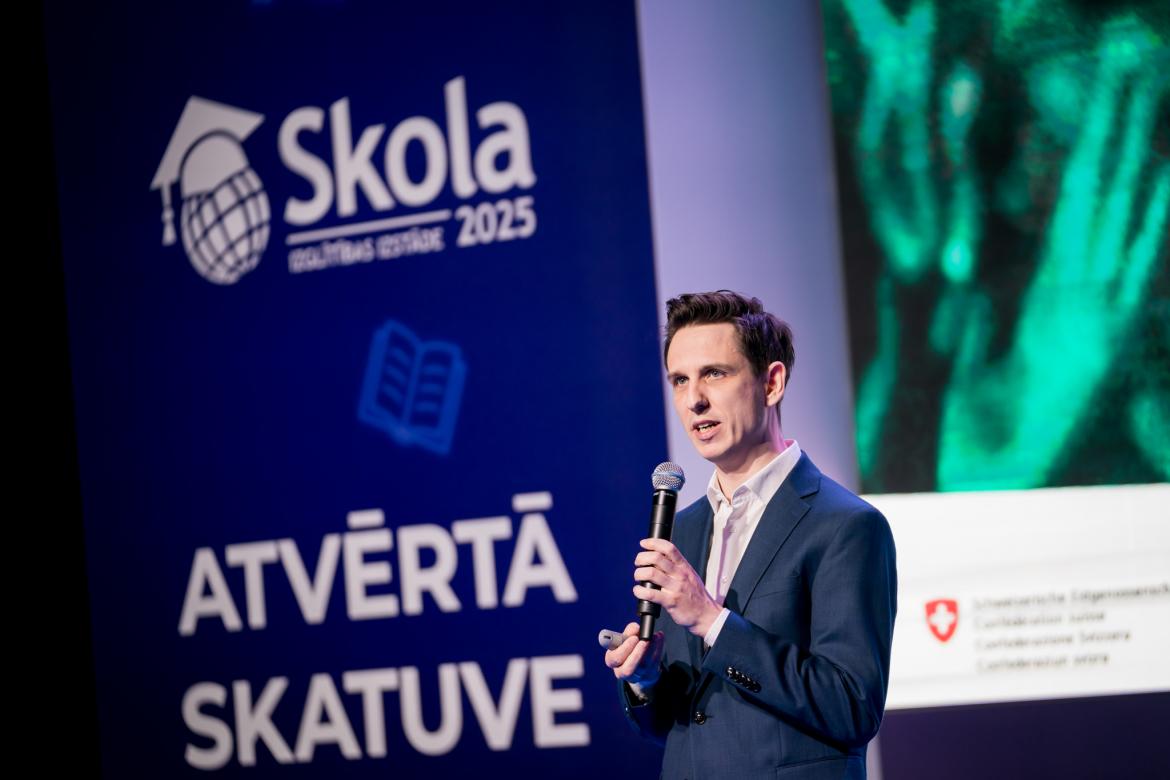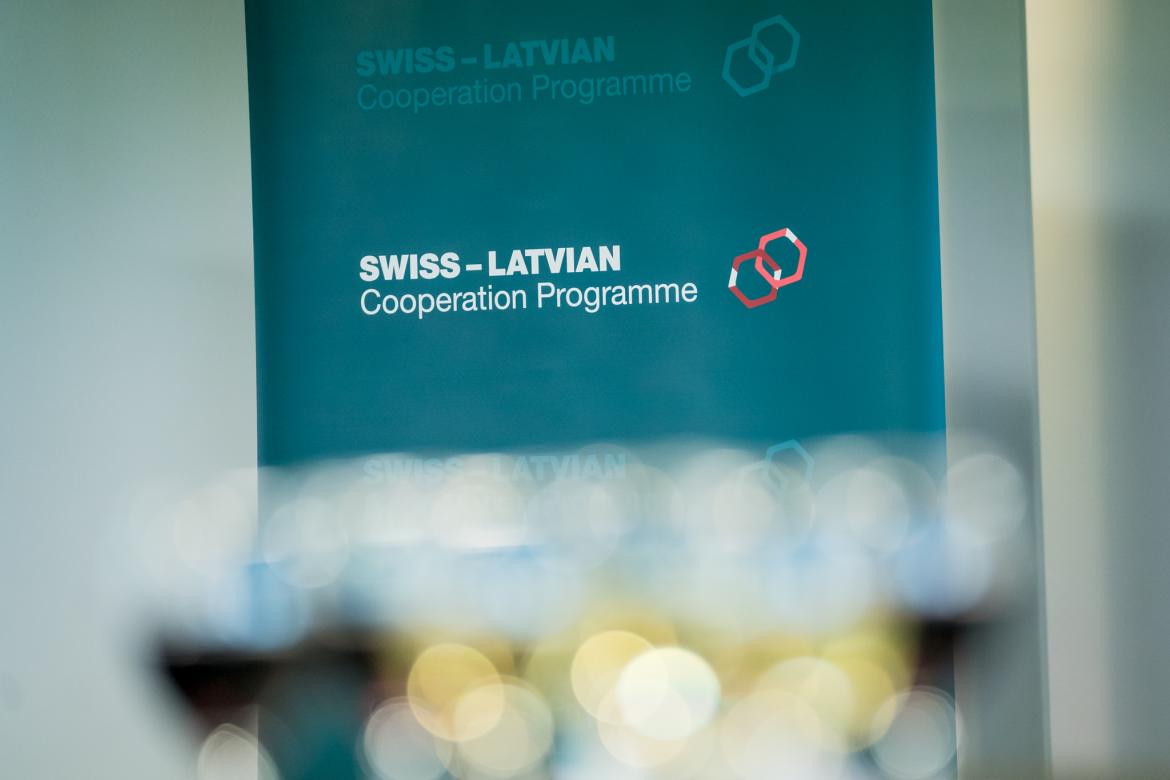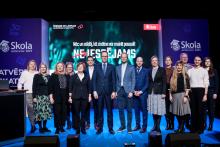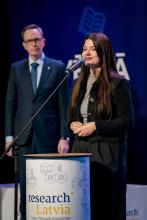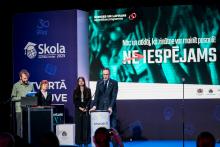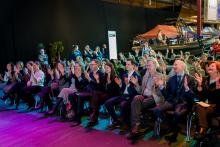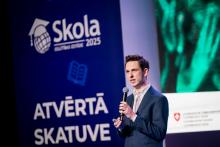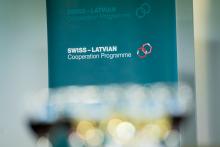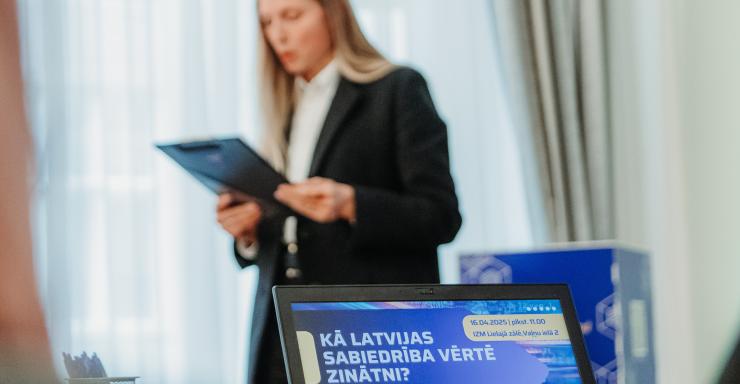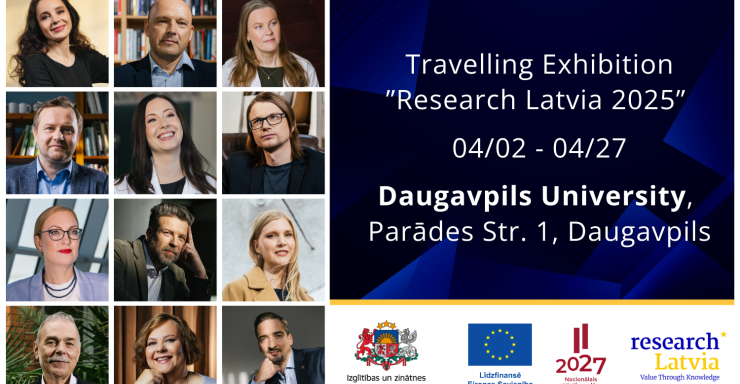On February 21, the international education exhibition "School 2025" hosted the launch event of the Swiss-Latvian Cooperation Programme ‘Applied Research’ titled "The Impossible is Possible". Scientists and innovation creators introduced the audience to ongoing research projects, demonstrating that science can be a viable future opportunity for every young person.

During the opening event, speakers addressed young people standing at the crossroads of their education and career choices, sharing insights into the planned achievements of the programme’s projects and encouraging them to consider a future in science. The event combined improvisation, music, and interactive activities to inspire the younger generation to explore science and innovation.
Significant International Cooperation
Addressing the exhibition visitors, Ambassador of the Swiss Confederation Martin Michelet, emphasized the importance of cooperation not only in science but also in promoting security and economic growth in Europe: "As we learn from the news every day, we cannot be safe and prosperous alone. Switzerland's contribution and this programme are tangible expressions of Swiss solidarity and partnership with our European friends and allies. The Applied Research programme aligns with these cooperation needs: through partnerships, we foster economic transformation and sustainable growth. Academic research leads to practical applications that benefit both society and businesses."
Meanwhile, Silvija Amatniece, Parliamentary Secretary at the Ministry of Education and Science, highlighted: "We can take pride in the Swiss government’s recognition of Latvia's scientific potential. Today, science and innovation are the driving forces of development. They help tackle major challenges – from climate change and sustainable infrastructure to energy sustainability. The Switzerland–Latvia collaboration is precisely about solutions that emerge when scientists from different countries join forces to achieve common goals, shaping new future opportunities."
Elita Zondaka, Director of the International Cooperation Programme Projects Department at the Latvian Council of Science, drew attention to an important aspect concerning young people, science, and future choices: "Science is a bridge between ideas and their realization. In this programme, Swiss and Latvian researchers will work together to develop sustainable solutions, improve energy systems, enhance infrastructure, and drive Latvia’s economic growth. This programme is not just an investment in science—it is also an opportunity for young people to see how innovation and research shape our future and to actively participate in its creation."

During the event, representatives from both Latvian and Swiss scientific institutions implementing projects supported by the Switzerland–Latvia Cooperation Programme shared personal stories about their journeys in science. They provided valuable insights into how they reached their goals and introduced young people to the opportunities available through these projects.
Two Key Projects in Latvia-Switzerland Partnership
Within the "Applied Research" programme, two high-level scientific projects are being implemented:
1. LACHMAT Project: Riga Technical University collaborates with Swiss partners to develop sustainable and innovative road pavement and concrete solutions. The project aims to extend the lifespan of asphalt surfaces, create 3D-printed concrete materials, and reduce carbon emissions.
2. LACISE Project: The University of Latvia’s Institute of Solid State Physics, in cooperation with Swiss and Latvian partners, is working on energy storage and smart grid improvements. The project focuses on developing new battery materials, enhancing catalysts for hydrogen production, and advancing energy efficiency solutions.
The Switzerland–Latvia Cooperation Programme is part of Switzerland’s contribution to European Union member states, aiming to promote scientific excellence, innovation, and economic development. Through this programme, €12.3 million is available to support the advancement of Latvian science and research, enabling the implementation of significant projects, the creation of innovations, and the strengthening of international cooperation.

Inspiring Future Innovators
The event was hosted by the improvisation group "Gandrīz Draugi", with musical performances by Edavārdi and Katō. Interactive science and technology quizzes gave young participants the chance to win training sessions with RigaTechGirls, visits to science centers, and strategic board games. Attendees could also explore researchLatvia's annual traveling exhibition "Research Latvia 2025", showcasing 12 remarkable scientists, and test their knowledge in a quiz about key intersections between Switzerland and Latvia.
The event demonstrated that science can be not only engaging and innovative but also accessible to everyone. Initiatives like this inspire young people to explore the world and shape their future in science.
